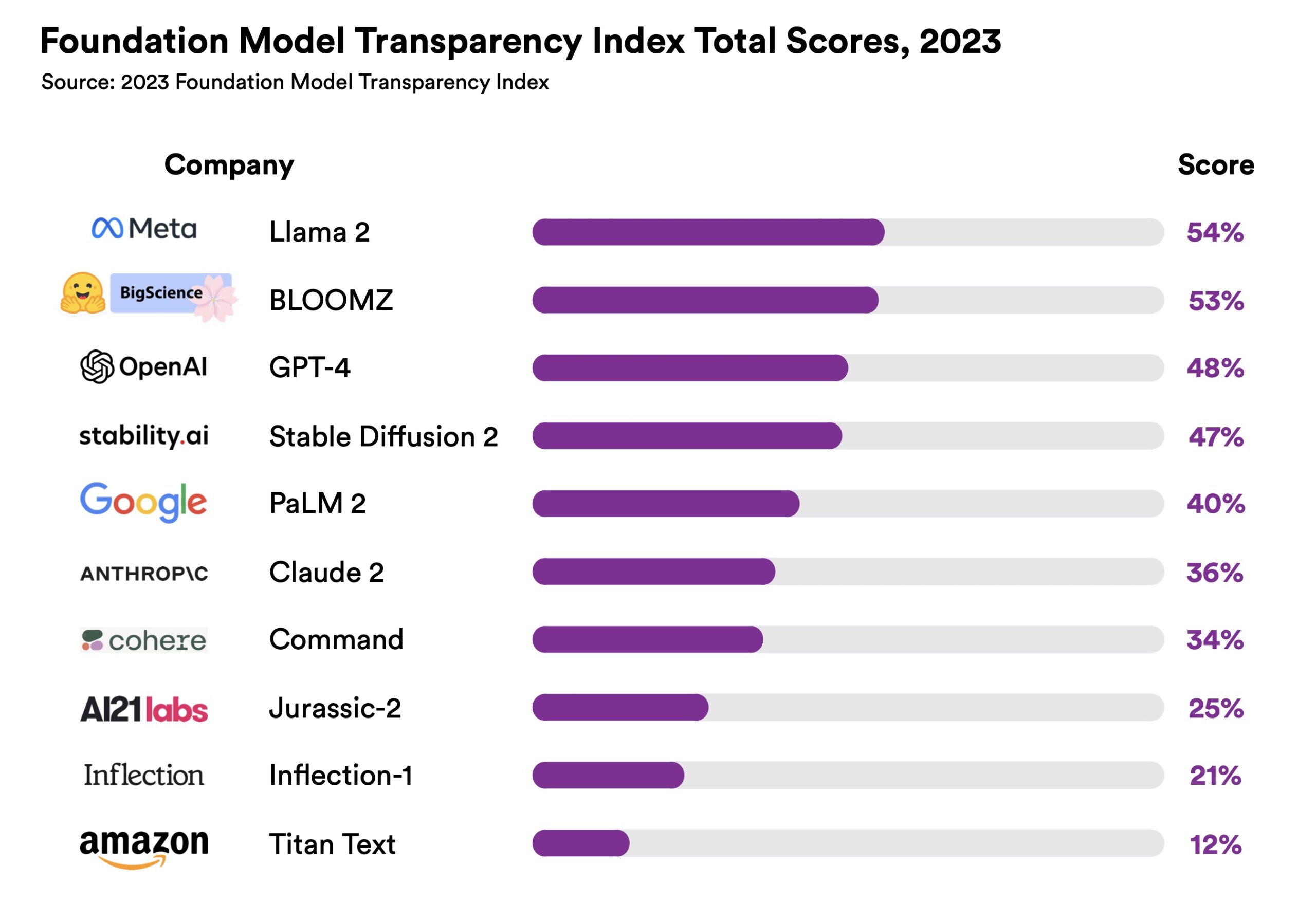Researchers from Stanford, MIT, and Princeton created the Foundation Model Transparency Index (FMTI) to benchmark the transparency of AI companies and their models. Meta’s Llama 2 ranked first with a score of 54%, followed closely by OpenAI with 48%. The index highlights the need for greater transparency in AI solutions and helps organizations make informed choices for model adoption. The criteria include disclosure of geographic information and energy usage. The FMTI score may influence the adoption of AI models in the future.

New Index Shows AI Models are Becoming Less Transparent
A recent index created by researchers from Stanford, MIT, and Princeton has revealed that AI companies are lacking in transparency. The Foundation Model Transparency Index (FMTI) evaluates the transparency of 10 foundation model companies based on 100 different aspects. These aspects cover how a company builds a foundation model, how it operates, and the user experience.
Although Meta’s Llama 2 ranked highest with a score of 54%, it is clear that there is still room for improvement. OpenAI came in third place with a transparency score of 48%. This is interesting considering the ongoing debate between open source and proprietary models.
The Importance of Transparency
Transparency plays a crucial role in choosing which AI model to adopt for your organization. When using an AI model, it is important to know if it aligns with your institution’s principles and if it could potentially lead to copyright infringements and litigation.
The FMTI not only highlights the need for more transparent AI solutions, but it also identifies which companies are performing better in terms of transparency.
Criteria of the Index
The FMTI includes various criteria that shed light on important issues. For example, it asks if geographic information regarding the people involved in data labor is disclosed for each phase of the data pipeline. It also questions if the amount of energy expended in building the model is disclosed, which is crucial for environmentally-informed decision-making.
These criteria address important concerns, but AI companies often poorly disclose such information. The decline in transparency is a growing concern as the societal impact of AI models increases.
The Impact of the Index
The FMTI score could potentially influence the adoption of one model over another as performance parity between the top models converges. The hope is that by quantifying transparency, it will encourage AI big tech companies to compete and strive for the top positions on the FMTI table.
Evolve Your Company with AI and Stay Competitive
If you want to stay competitive and leverage AI for your company, it’s important to understand the value of transparency. Here are practical steps you can take:
- Identify Automation Opportunities: Locate key customer interaction points that can benefit from AI.
- Define KPIs: Ensure that your AI initiatives have measurable impacts on business outcomes.
- Select an AI Solution: Choose tools that align with your specific needs and offer customization.
- Implement Gradually: Start with a pilot, collect data, and gradually expand the usage of AI.
For AI KPI management advice, you can connect with us at hello@itinai.com. Stay updated on leveraging AI by following us on Telegram at t.me/itinainews or on Twitter at @itinaicom.
Spotlight on a Practical AI Solution: AI Sales Bot
Consider using our AI Sales Bot from itinai.com/aisalesbot. This bot is designed to automate customer engagement 24/7 and manage interactions across all stages of the customer journey.
Discover how AI can redefine your sales processes and customer engagement. Explore our solutions at itinai.com.
List of Useful Links:
- AI Lab in Telegram @aiscrumbot – free consultation
- New index shows AI models are becoming less transparent
- DailyAI
- Twitter – @itinaicom

























